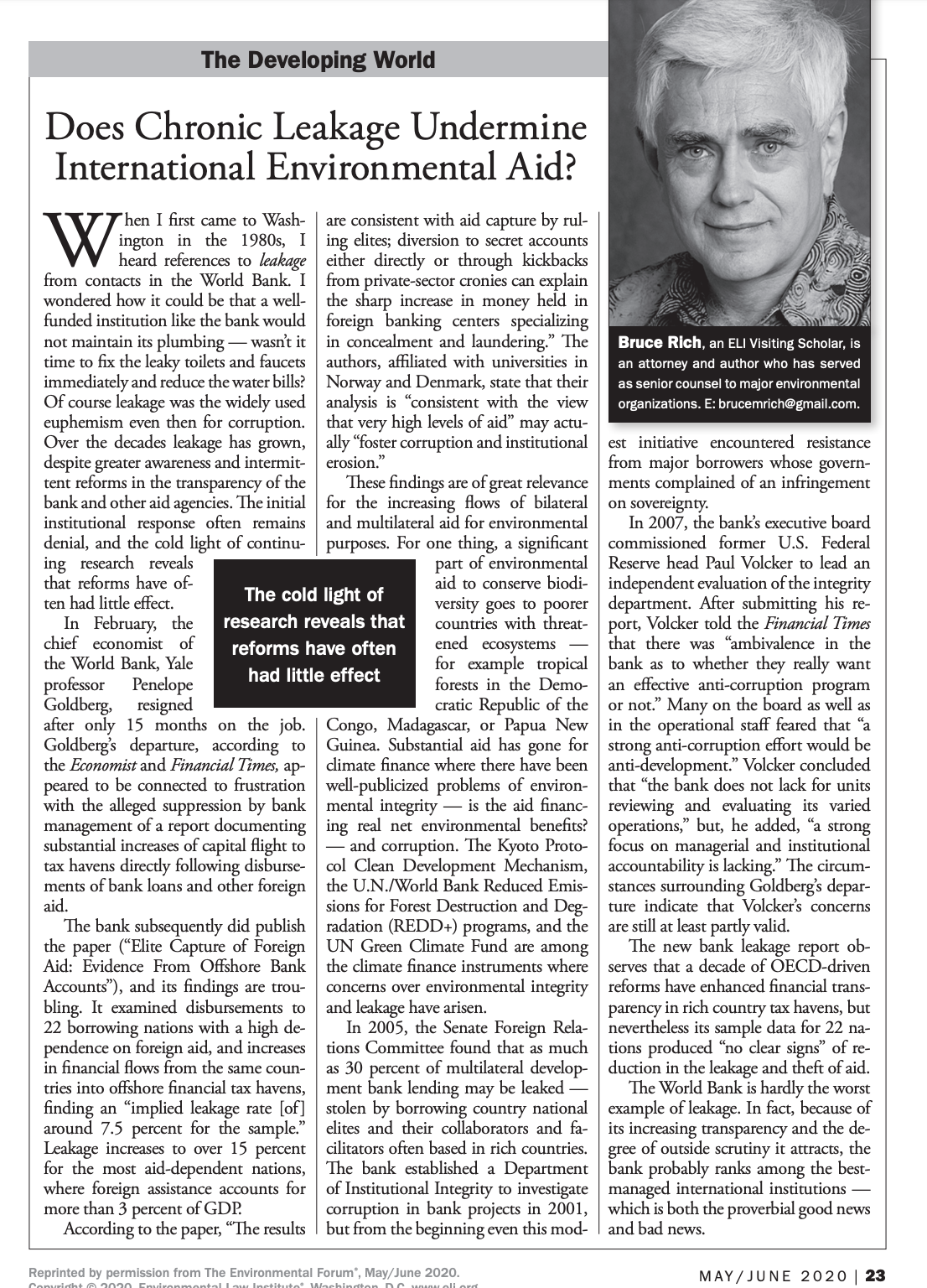- Bruce Rich
- Environmental Forum
- May-June 2020
- 23
Of course leakage is the widely used euphemism for corruption. Over the decades leakage has grown, despite greater awareness and intermittent reforms in the transparency of the World Bank and other aid agencies. The initial institutional response often remains denial, and the cold light of continuing research reveals that reforms have often had little effect. In February 2020 the Chief Economist of the World Bank, Yale professor Penelope Goldberg, resigned after only 15 months on the job. Ms. Goldberg’s departure, according to the Economist and Financial Times, appeared to be connected to frustration with the alleged suppression by Bank management of a report documenting substantial increases of capital flight to tax havens directly following disbursements of Bank loans and of foreign aid in general. The report examined Bank disbursements to 22 World Bank borrowing nations and increases in financial flows from the same countries into offshore financial tax havens, finding an “implied leakage [corruption] rate [of] around 7.5 percent for the sample.” Leakage increases to over 15 percent for the most aid dependent nations where foreign assistance accounts for more than 3 percent of GDP. “The results are consistent with aid capture by ruling elites; diversion to secret accounts either directly or through kickbacks from private sector cronies, can explain the sharp increase in money held in foreign banking centers specializing in concealment and laundering.” The authors, affiliated with universities in Norway and Denmark, state that their analysis is “consistent with the view that very high levels of aid” may actually “foster corruption and institutional erosion.”



